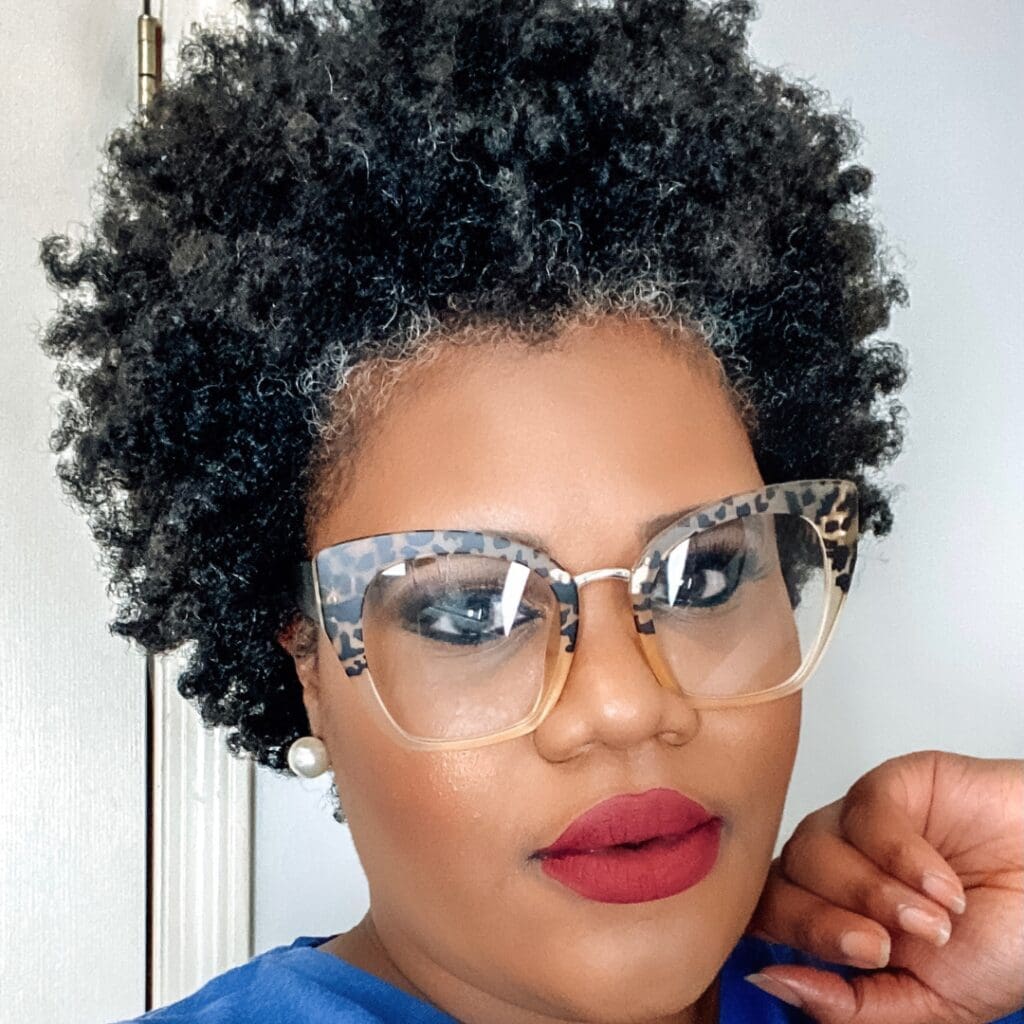
There are several reasons why your natural hair isn’t growing or stopped growing. Since I have been natural for quite some time, my natural hair has gone through a few ups and downs and I have learned to listen to what my hair needs. I often hear from other black women how hard it is to care for their natural hair. Either their hair isn’t retaining length, or they can’t style it properly. Fortunately, I do know a thing or two about maintaining natural hair.
The key to growing natural hair or retaining your hair’s length comes from proper maintenance and care. Knowing how to care for your hair properly is the key to growing your natural hair, and if you wear many protective styles, you have found one of the main reasons you’re suffering from hair growth. Keep reading to discover a few more reasons why your natural hair isn’t growing and how you can fix it.
You Don’t Know Your Natural Hair POROSITY
Like most naturals, you might not know the importance of hair porosity, which is another factor in why your natural hair may not grow. What is hair porosity? Hair porosity is the ability of your hair to retain moisture, and moisture is needed for your natural hair to retain length and grow. Hair porosity is divided into low, normal, and high porosity. Knowing your porosity is the key to healthy growing natural hair. Understanding how your hair retains moisture will help you identify the right stylers, conditioners, and shampoos your hair needs to grow.
Naturally, your hair sheds about 50 to 100 strands of hair daily, and for your hair to grow, your hair follicles produce new hair strands. To learn more about porosity, check out this blog post: How To Manage Your Low-Porosity Hair. This blog post features a very important chart I have used to determine the best way to care for my hair.
You’re slacking On Your Hair trims
Despite the fear of shears, every natural should trim their natural hair often if they want to see growth. Trimming your ends is necessary for your natural hair to grow and retain length. I’ve been guilty of not trimming my ends, and I can tell a huge difference in my hair when it’s not trimmed. The most asked question I receive is how often you should trim your natural hair. I’ll be honest; there isn’t a one size fits all when trimming your hair. I advise anyone to start a natural hair care routine that works for their hair. Once you have identified your wash days, you should track how often you trim your hair.
So, for example, at the beginning of each month, begin writing down your natural hair routine. You will include the products you use, the day you trimmed your hair, and anything else that will impact the growth of your hair. Many naturals assume they make the mistake of not trimming their hair because they fear losing length. But if I told you that trimming the oldest part of your hair leads to growing hair? If you’re uncomfortable trimming your natural hair, research a hairstylist in your area that specializes in natural hair. Not trimming your natural hair leads to split ends which, if not corrected promptly, will continue up the hair shaft causing more breakage. If your ends are rougher or dry, it’s time for a trim.
Over-Manipulating Your Natural Hair
Over-manipulating your hair is another reason your natural hair may not be growing. Changing the style of your hair weekly can do more harm than good, especially if you want to grow your hair. Trying new techniques on your natural hair is fun, but low-maintenance styles are better. Low-maintenance styles include mini-twists, twists, and flat-twist, which are less damaging to your hair than braids and sew-ins. These are my go-to styles and have helped me keep my hair healthier. In other words, keep your hands out of your hair! My wash day consists of- shampooing, deep conditioning, and styling. For example, shampoo, deep condition, then style your hair in mini-twist. You can keep that style for about 4-5 days; if you must, you can unravel your hair for days 6 and 7. You can have the style you want and still keep a low-maintenance hairstyle.
Not Deep Conditioning Your Hair
Not deep conditioning your natural hair weekly could be the reason why your natural hair isn’t growing. I list all my favorites in this blog post if you’re looking for a few deep conditioners. If you’ve been slacking on deep conditioning your hair, I suggest you start now! Depending on your hair’s porosity (there goes that word again) determines the kind and how often you should deep condition your hair. Your porosity plays a huge part in the deep conditioning process. Despite what you may have heard or read, your hair, whether you have low porosity or high porosity, needs protein and hydration. Both help aid with the growth of your natural hair. Here are a few benefits of deep conditioning your hair:
- Hydrate and soften hair.
- Improve hair elasticity
- Prevent and combat hair breakage
- Repair hair damaged
- Restore moisture that allows hair to resist stretching
Drinking Water Will Help Your Natural Hair Grow
Did you know that not only can water help your overall health but it can also help with the health of your hair? If you want your natural hair to grow, then drink your water. Think of your hair like a plant; for your plants to grow, you must water them. The same goes for your natural hair. You should shampoo your hair, which helps cleanse your scalp, and give your hair the nutrients it needs from within. Drinking plenty of water will improve your hair and your skin as well. I’m not saying that water will answer all your problems, but it will help.
There could be several reasons why your natural hair isn’t growing but by incorporating these few tips into your hair care routine, you will be well on your way to increasing your hair growth. Are we friends on Instagram? If not, let’s change that. Follow me on Instagram for daily content.
5
